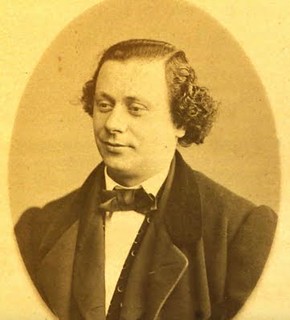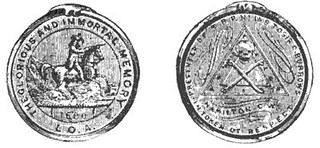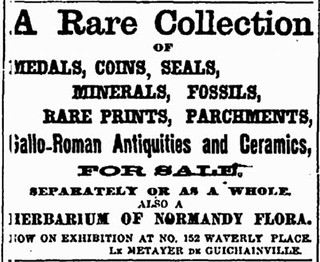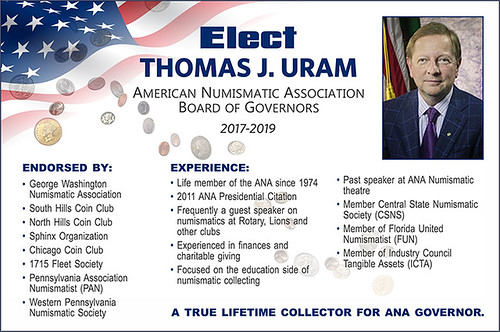
PREV ARTICLE
NEXT ARTICLE
FULL ISSUE
PREV FULL ISSUE
BARON DE GUICHAINVILLE (1831-1911+)John Lupia submitted the following information from the online draft of his Encyclopedic Dictionary of Numismatic Biographies for this week's installment of his
series. Thanks! As always, this is an excerpt with the full article and bibliography available online. This week's subject is French, Canadian and American numismatist M. Le Métayer-Masselin.
-Editor
Léon Philippe Le Métayer-Masselin, Baron de Guichainville (1831-post 1911), was born in Guichainville, Évreux, Normandy, France. He lived in Bernay in a mansion designed and built by prix de Rome winner, Adolphe Bouveault. He was a French archaeologist, entomologist, and numismatist. In 1861 he was the archaeologist who discovered the so-called Berthouville treasure, which included 3,000 Roman medals and coins in a site he believed was either a city, temple, or cemetery. His family lost their fortune in the 1870's during the Franco-Prussian War, when his family had borrowed off the estate and the mortgage foreclosed. The de Guichainville family fled as refugees packing what portable valuables they could quickly and easily transport in flight. They emigrated to Montreal, Quebec, Canada circa 1874 to establish a ribbon factory, and M. Le Métayer-Masselin became a dear friend and secretary to the parish priest at Chambly about whom he wrote a pamphlet. While living in Canada M. Le Métayer-Masselin became a member of the Numismatic and Antiquarian Society of Montreal. He donated documents and seals to that Society in September 1877. After his attempt at establishing a ribbon industry failed about 1880, he then moved to New York where he became a naturalized citizen in 1898. There he worked as a private French tutor seeking elite New York families as patrons.
Thomas L. Elder had written about the Guichainville family early in 1914 and read from his text as a letter before the New York Numismatic Club on Friday evening, March 13, 1914. Later in 1936, Elder wrote a series of three short essays on the Guichainville family published in Hobbies : The Magazine For Collectors in his monthly column "Recollections of An Old Collector". To read the complete article, see:
Wayne Homren, Editor The Numismatic Bibliomania Society is a non-profit organization promoting numismatic literature. See our web site at coinbooks.org. To submit items for publication in The E-Sylum, write to the Editor at this address: whomren@gmail.com To subscribe go to: https://my.binhost.com/lists/listinfo/esylum All Rights Reserved. NBS Home Page Contact the NBS webmaster 
|



